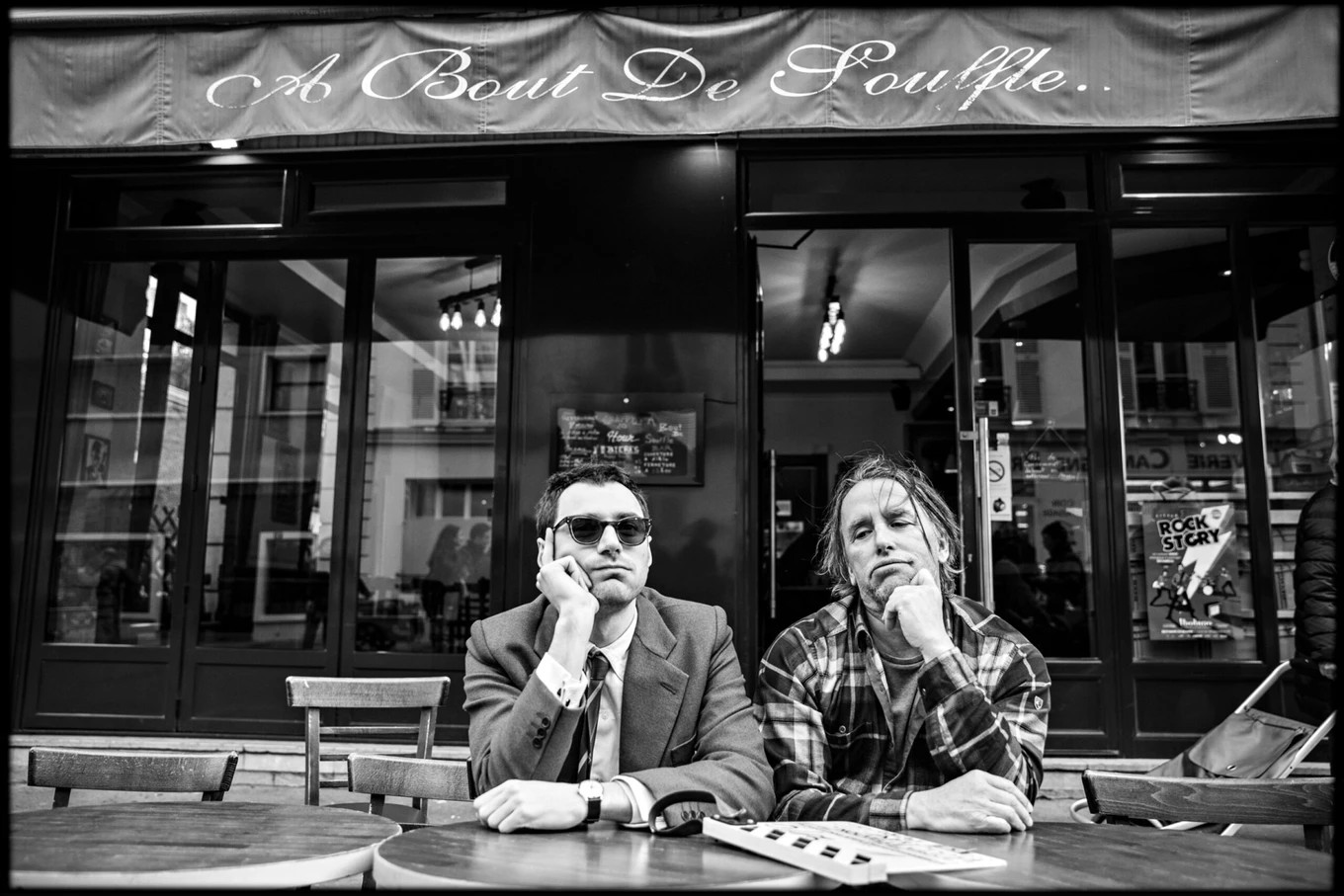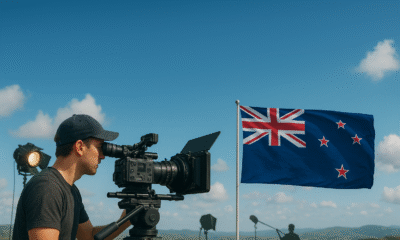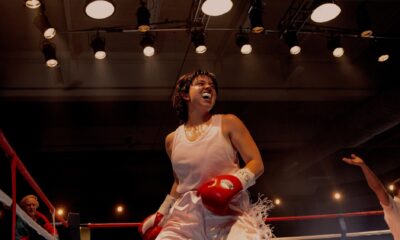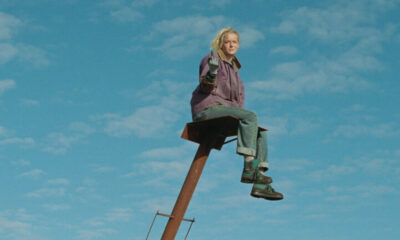

Featured Review
Cannes 2025 – Nouvelle Vague ★★★
Released: TBC (Cannes 2025)
Director: Richard Linklater
Starring: Guillaume Marbeck, Zoey Deutch
Nouvelle Vague is a present from people who love movies about people who loved movies for people who love movies, and as such is to be cherished. Yet the greatest surprise of Nouvelle Vague is that it was Richard Linklater who directed it. Mr Linklater is American, so not the obvious choice to make a homage to the French filmmaking of the 1960s that rewrote cinema as we know it. Mr Linklater is also more famous for playing with time in his narratives – taking twelve years to make Boyhood, revisiting an intercontinental couple in the Before trilogy, and in his debut Slacker skittering around Austin, Texas to tell stories only linked by the fact they are happening in the same city on the same day. Nouvelle Vague is a traditional tale of the process through which a critic, Jean-Luc Godard (Guillaume Marbeck), became a movie director.
The movie he made was Breathless, starring Jean-Paul Belmondo (Aubry Dullin) and the American Jean Seberg (Zoey Deutch), and it completely retooled the language of cinema. Such a movie is catnip for audiences like those at the Cannes Film Festival – a location which does indeed appear – and Nouvelle Vague has been clearly designed to appeal to the kind of cineaste who likes to meme their favourite cinematic moments all over social media. Not that there’s anything wrong with that! This kind of behind-the-scenes examination of how art gets made never gets old.
Godard is the kind of ideas man beloved by money men. He is able to take an ethos and a very high opinion of himself and talk his way into the wallets of wealthy backers, who are prepared to hand over the cash on his terms because of his confidence that he can deliver an interesting movie on the cheap. He pulls together a crew, most notably an assistant director named Pierre (Benjamin Clery, who gets the biggest laugh of the film) and a cinematographer named Raoul (Matthieu Penchinat), who cut his teeth filming war footage as a soldier in Vietnam and is therefore unfazed by Godard’s casual working style. For Godard was keen on freshness and spontaneity, pushing Raoul around in a wheelchair and arguing with crew members keen on maintaining precise continuity between shots. Mr Linklater is himself uninterested in showing how the final film of Breathless came together, focussing on the experience of its making. In this telling Ms Seberg was game and doing her best but uncomfortable with pretty much everything on the set, while Mr Belmondo felt the whole thing was a delightful game, not to be taken very seriously.
But the main joy of Nouvelle Vague will be the ways in which practically everyone adjacent to Breathless became world-famous, the kind who must be introduced posing with a cigarette as their name flashes up, so we in the audience can re-enact the “Leonardo DiCaprio pointing” meme. The dialogue, written by Holly Gent, Laetitia Masson and Vincent Palmo Jr., is largely pithy quotes about art that will be screenshotted by earnest students until the end of time. This is somehow charming instead of pretentious – a very fine line indeed – though there is no attempt whatsoever to learn about Godard’s motivations for telling this story. And while it’s obvious the movie has a huge fondness for Godard, that doesn’t extend to including a single shot of Mr Marbeck without sunglasses. The free-wheeling openness clearly has its limits, but the sense of play (underlined by a great deal of hard work) makes it feel like making a movie is actually really easy. Cinematographer David Chambille, working in black-and-white, also makes Paris feel spacious and friendly, two things which are not always true about the city.
What is true about Nouvelle Vague is that it is like a madeleine: expertly made, with a sweet taste, and which vanishes off the palate the moment it is over. That is not really a criticism, because sometimes something delicious to cheer you up is all you really want. But as with a madeleine, in Nouvelle Vague there isn’t a great deal there. What is there is very nearly perfection, but it doesn’t linger long, except in the memory. It’s hard to complain that something this delightful is also this insubstantial, but “Nathan Fillion frowning” meme: a truly great movie would have offered something new instead of just a memory of something great made before. That said, Nouvelle Vague is an expertly made joy, and those who like this sort of thing will like it very much indeed.
-

 News4 weeks ago
News4 weeks agoBolton International Film Festival Set To Return For 9th Edition
-

 Featured Review2 weeks ago
Featured Review2 weeks agoThe Smashing Machine ★★★
-

 Movie Reviews1 week ago
Movie Reviews1 week agoLondon Film Festival 2025 – Wake Up Dead Man: A Knives Out Mystery ★★★★
-

 Movie Reviews1 week ago
Movie Reviews1 week agoI Swear ★★★★★
-

 Movie Reviews1 week ago
Movie Reviews1 week agoTron Ares ★★
-

 Features1 week ago
Features1 week agoThe World’s End? How The Long Walk/The Mist Mirror Today’s Society
-

 Featured Review4 weeks ago
Featured Review4 weeks agoOne Battle After Another ★★★★
-

 Features3 weeks ago
Features3 weeks agoNew Zealand’s Screen Sector Gets Huge Government Boost: What It Means for Future Blockbusters and Filmmaking













